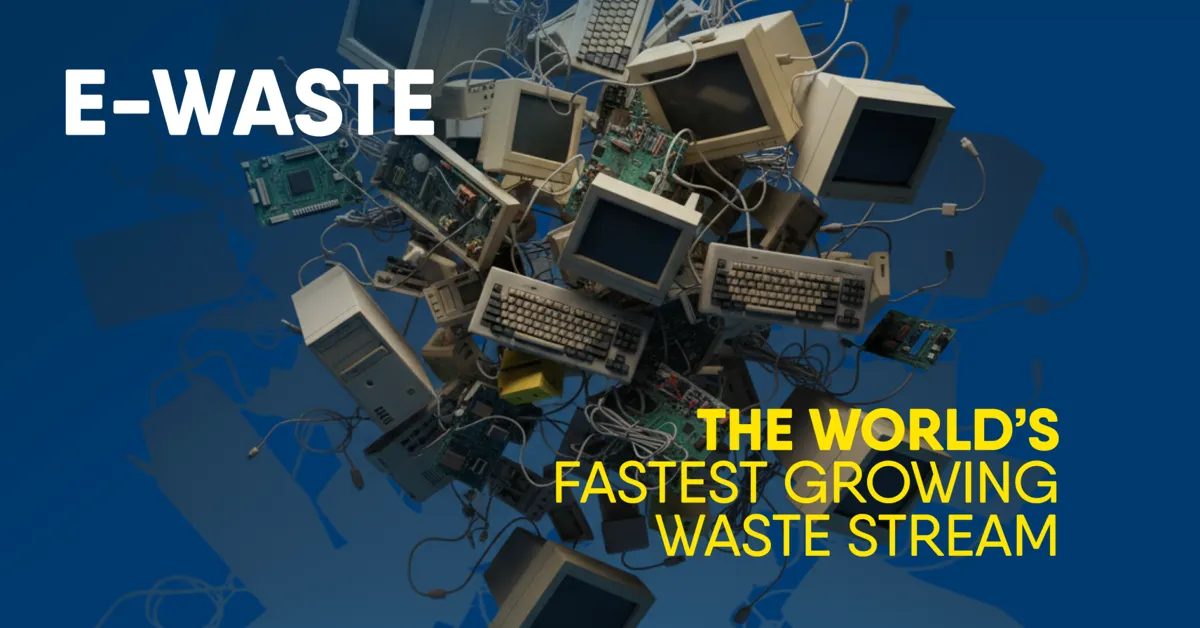CHOOSE
A DIFFERENT TERRITORY

From out-of-use fridges and washing machines to old cables and kettles, electrical waste – known as e-waste – is now the world’s fastest-growing waste stream. Driven by the pace of “fast tech” – the rapid production and replacement of electronic devices – and frequent upgrades, the volume of unwanted electricals continues to rise every year.
Listen to this story
The UK is currently the second largest producer of WEEE (Waste Electrical and Electronic Equipment) per capita globally, highlighting the scale of the challenge. But this is also the scale of the opportunity — for households, businesses and the recycling industry — to recover more value from this growing waste stream.
WEEE includes anything with a plug, cable or battery that has reached the end of its life. It covers all grades of electrical waste, including Large Domestic Appliances (LDAs) such as fridges and washing machines, as well as Small Mixed WEEE (SMW) which are smaller household items like kettles, printers and toasters.
Both households and businesses generate significant amounts of WEEE each year, from old office equipment to commercial fridges and kitchen appliances. Ensuring these items are collected and treated responsibly is key to reducing environmental impact and supporting the circular economy.
Many electrical items still end up being disposed of through general municipal waste streams – an unfortunate consequence of limited collection points and a lack of public awareness about recycling options.
There are several responsible routes for householders to choose from:
By choosing these responsible recycling routes, you’re helping to close the loop and ensure your old technology supports a more sustainable future.
At EMR, we are proud to operate the UK’s largest collection and treatment network for WEEE. We provide tailored recycling solutions for a wide range of partners – from local authorities, take-back schemes, producer compliance schemes to businesses managing commercial WEEE responsibly.
Our experts are on hand to advise on the most effective and sustainable recycling routes for WEEE, ensuring valuable materials are recovered and reused — reducing the need for raw material extraction and preventing valuable resources from being lost to disposal.
Every electrical item recycled is a step towards reducing emissions, conserving natural resources and supporting a more circular economy. Through our growing WEEE network across the UK, EMR is helping to turn today’s electrical waste into tomorrow’s opportunity.
To find out how you or your business can recycle WEEE responsibly, visit our website today.